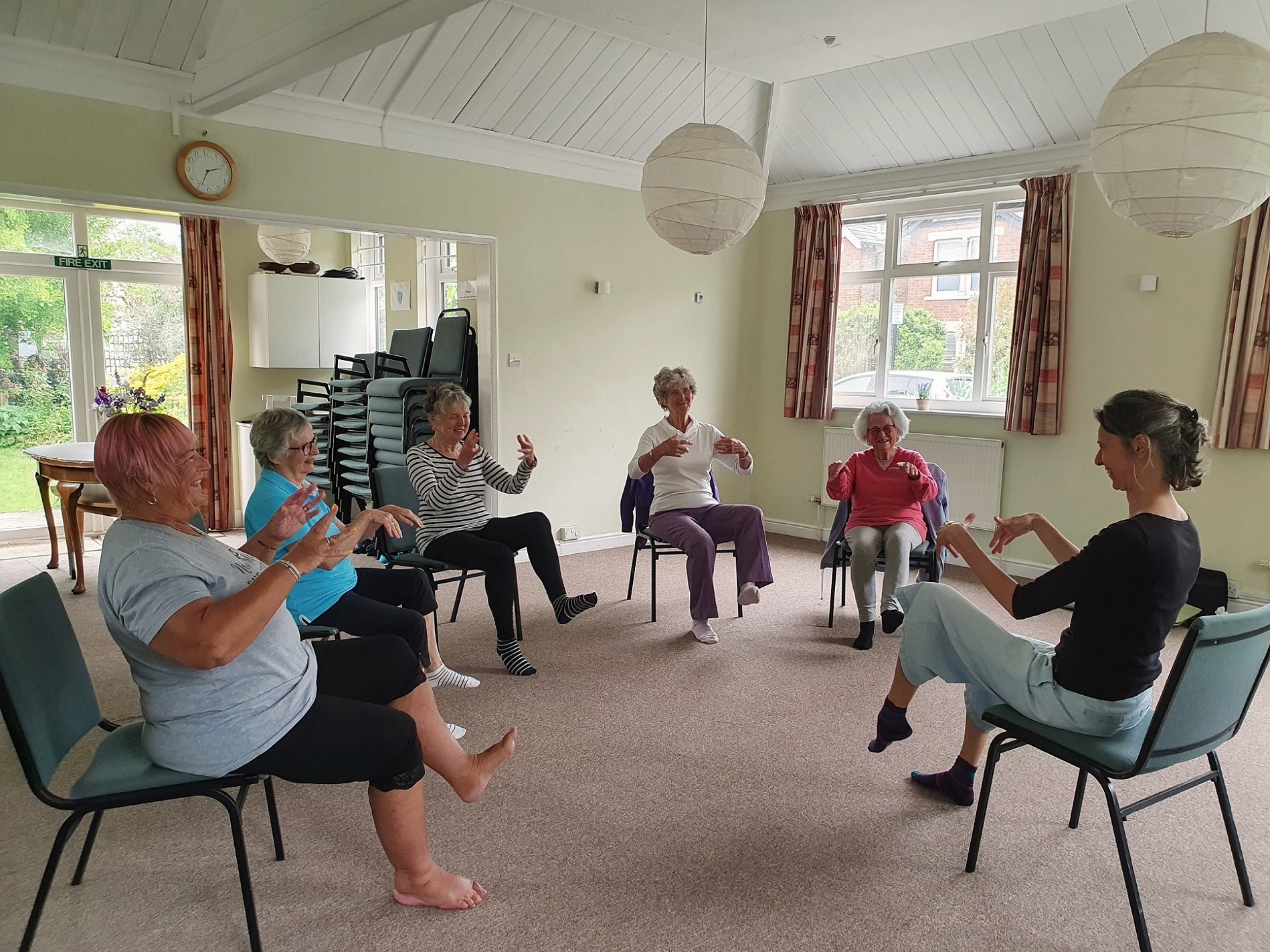Embracing Gentle Movements: A Pathway to Health & Wellbeing – Blog Post #15
Published on Wednesday 17th April 2024 by guest contributor Moniek Hopman
I have always been interested in human movement. I did yoga with my grandmother when I was little, I started modern dance when I was a teenager, studied Sciences of Human Movements in Amsterdam, did Qigong when I was in my 20s and a few years later I discovered Feldenkrais. Based on all these movement practices, I developed a gentle practice for myself. I didn’t feel ready to share this practice with others until around ten years ago, when my mum got serious health problems and we found that my method of moving relieved her symptoms significantly – and so Gentle Movements was born.


What sets the Gentle Movements approach apart is the emphasis on listening to the body and honouring its wisdom. Rather than asking participants to imitate movements, they are invited to explore and discover ways to move and feel better for themselves. This gentle, non-prescriptive approach empowers individuals to cultivate a deeper connection with their bodies and find movements that resonate with their unique needs and preferences.
Many participants report feelings of calmness, reduced achiness and enhanced mental clarity. Through the practice of gentle movements, individuals learn to tune into their body’s signals, finding joy and comfort in movements.
Here are some of the health benefits of Gentle Movements:
♾ Reduced stress and anxiety: engaging in gentle movements encourages deep breathing and relaxation, which can alleviate stress and anxiety. The slow, deliberate movements promote mindfulness, allowing you to stay present in the moment and let go of worries.
♾ Renewed physical experience: you learn that there are a lot of movements that you can do that feel nice, rather than focussing on things that are painful.
♾ Boosted energy levels: while gentle movements may not leave you dripping in sweat, they can boost energy levels by promoting circulation and oxygen flow throughout the body. Many participants report feeling rejuvenated and revitalized after a session.
♾ Better sleep: regular practice of gentle movements has been linked to improved sleep quality. The calming effect can help prepare the body for restful sleep, which enables your body to recover from stress and some physical problems.

Based in Cambridge, I host weekly Gentle Movements classes at the Friends Meeting House in Hartington Grove. In addition to in-person sessions, I also offer online classes (take a look on this link) and I am available for one-to-one sessions at my home in Great Shelford. I work with people who just want to be more comfortable in their body, as well as those who have specific health issues or suffer from pain.
If you can’t attend sessions, I’d encourage you to incorporate the Gentle Movements approach into your daily routine – here are some tips for getting started alongside a taster session on video:
♾ Start small and keep the movements within a range that feels truly comfortable for you. Listen to your body and honour its limits.
♾ Become aware of the effect the movements have on how your body feels. If it makes you feel better, it is easy to keep going. If it doesn’t make you feel better, try and find another movement or form of exercise.
♾ Be kind to yourself: remember that gentle movements are not about perfection or pushing yourself to the limit. Allow yourself to progress at your own pace and be gentle with yourself, especially on days when you’re feeling stressed, tired or achy.
Find out more about Moniek’s classes in Cambridge by visiting the Gentle Movements webpage on the How Are You Cambridge website.
If you would like to explore Tai Chi, Qigong, yoga, Pilates or other forms of gentle exercise and mindfulness, there’s lots of inspiration and information about classes in your area on the How Are You Cambridgeshire & Peterborough websites. Take a look on this link.

